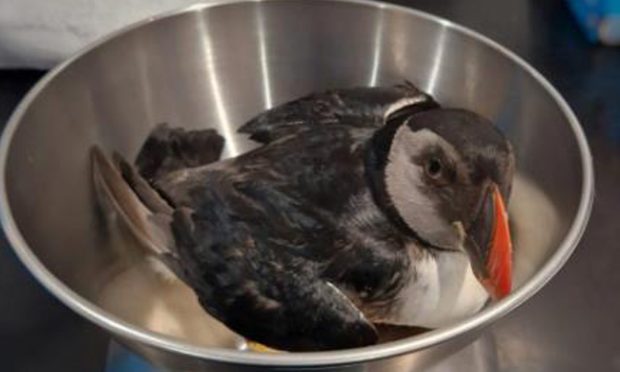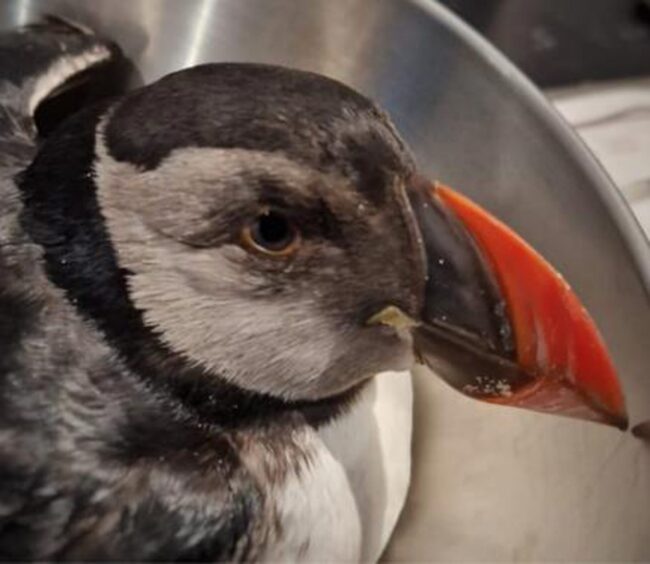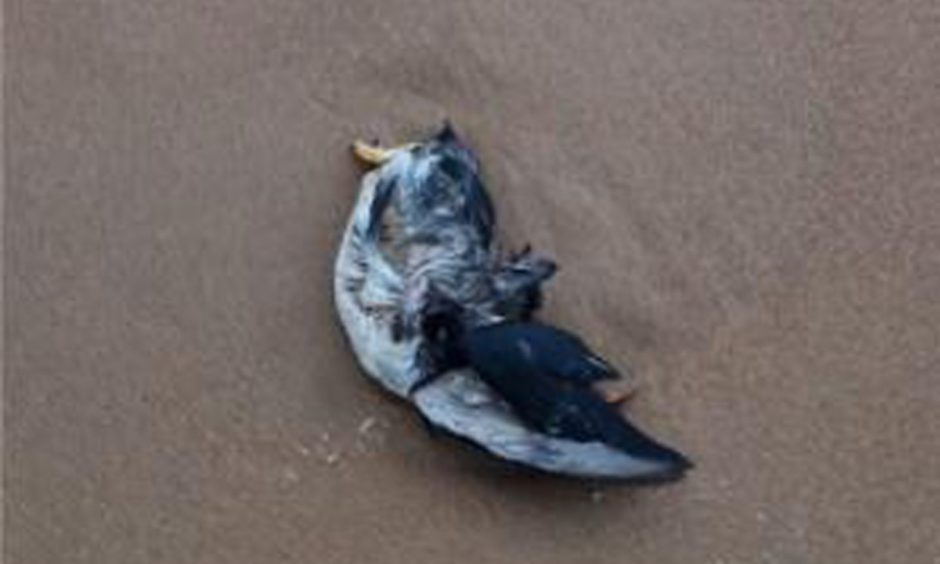A feisty puffin has been rescued from Cruden Bay just seconds before being washed out to sea.
The male puffin was found waterlogged and stranded along the beach by a local walker this afternoon as high tide washed in.
Paul Reynolds, co-manager for New Arc Wildlife Rescue leapt into action following reports of multiple puffins in distress along the Aberdeenshire coastline.
However, upon his arrival, all but one male puffin had died.
‘He was not very happy about being rescued’
Recalling the dramatic rescue, Mr Reynolds said the puffin was just moments away from being washed out to sea.
Speaking to The Press and Journal, he said: “I got to Cruden Bay and the weather was very poor. The tide was coming in, it was around an hour before the high tide, so the waves were washing up the beach quite dramatically.
“I went across the beach and I came across lots of deceased puffins. There was just this one puffin in the surf. The water was just retreating from him and he was lying there, so I rushed over and caught him.
“He was quite feisty and vocalising and was not very happy about being rescued but he was completely waterlogged – soaked through and not doing well.
“He was seconds away from being swept off back into the sea. The waves were huge so he would have been dead by now.”
The bird was rushed to the charity’s rescue centre near Ellon where he was dried off and given fluids.
He is now being monitored as they do all they can to save him.
Stormy weather leaves birds washed up along the coastline
The co-manager says the puffin is doing well so far, but stressed it is too early to speculate.
“It is very early days,” he added.
“He’s dried out now, he’s alert and has been grooming, which is a good sign. It is what we want to see.
“He is feisty, and vocalising when we have to handle him. As far as these birds go in this situation, he is doing well so far but you have got to get past a few days before you can be a bit more confident. He is doing all the right things.
“Sea birds that get washed in, in this manner, don’t always have a good outcome but we are going to give it a go and monitor his progress.”
Mr Reynolds said rescues of this nature are not uncommon, particularly in the aftermath of a storm.
He said: “We get a few puffins a year but it is unusual to have a viable one.
“Bearing in mind how puffins live their life; they go far out to sea to hunt and come into the cliffs when they are breeding to nest and feed their young.
“They are not really the sort of birds that come close to land. They are not a common bird for wildlife rescues to have generally.
“Being that the storm is coming from the east, it blows them in.
“You will see an increase in these species come in because of the type of weather and the direction of the wind at the moment.”



Conversation